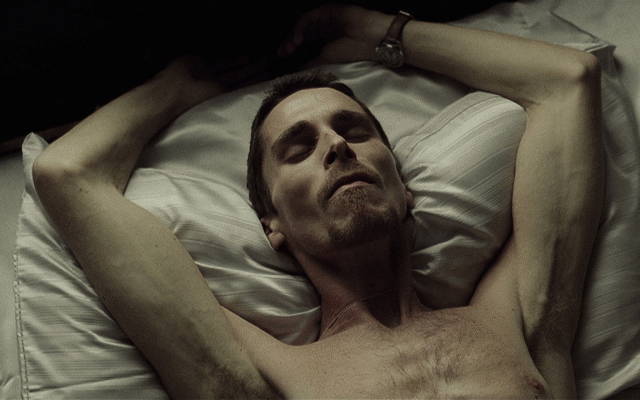With awards season edging ever closer, it is the time in which we start to scrutinise the performances of our favourite actors with a beady eye. Whilst performances earlier in the year were accepted with the bat of an eyelid, actors’ work during January and February is received with a somewhat more charged reception. Who will be in the running? Who has transformed themselves sufficiently to warrant celebration and who should go unnoticed? Most importantly, who have we believed in enough to garner with awards and praise, only to forget about them two months down the line? At this point, it’s hard to say and with no obvious contenders for the major awards, there is still everything to play for.
The key seems to be transformation; the actors who undergo the biggest change on screen tend to be the ones to whom we are drawn. And we’re not just talking losing a little weight for a new role. Weight loss is small time. We’re looking at the actors who take on a new role and make it a part of their lives, who adopt an entirely new personality for a period of months, enraging the ones around them who have to put up with it. The ones who win big will look some way towards The Method in order to secure their place in film history.
Method acting is a bit of a touchy subject for some; lauded by certain actors and disdained by others, it really is a love it or hate it kind of thing. Whilst method acting may have changed somewhat from its inception, there are still certain ways by which a modern actor can conform to the method, altering their way of life in small but significant ways. In most cases, actors go through some kind of discomfort – physical, mental, social, or otherwise – in order to completely change themselves for a role. Initiating in theatre, method acting soon made its way to the actors of the big screen, using it as a means to perfect their sometimes tinny performances. As the movies grew in stature, actors looked continually towards the method as a way of upping their game.
Perhaps one of the most well-known modern method actors, Christian Bale always seems to be someone else. Famously accepting awards in a variety of accents, Bale takes the method thing a little further than most, incorporating apparently every dark detail of a character’s past into his being. In The Machinist, Bale lost a shocking amount of weight, changing himself beyond almost all recognition. Of course, weight loss doesn’t ensure cinematic success and whilst The Machinist was well-received, it is predominantly remembered for Bale’s physical transformation.
Daniel Day Lewis is maybe the most method mad of them all. Whilst many other stars tend to be typecasts of their own model (think Hugh Grant), Day Lewis is one of the most mercurial presences in all of cinema, never recognisably the same man. Quite often, it’s difficult to recognise the actor in one of his own films. When it comes to method dedication, Day Lewis really takes the cake. In the role of a Czech doctor in The Unbearable Lightness of Being, he learned Czech, even though he didn’t need to. In The Last of the Mohicans, he learned how to build canoes. For My Left Foot, in which he played a man with cerebral palsy, he spent nearly the entire shoot in a wheelchair and only went by his character’s name. With such acting dedication, it’s little wonder that Day Lewis has scooped up three Oscars for his work. Teamed with the fact that his roles are relatively few and far between, Day Lewis seems to be the ultimate method maestro, living beneath a permanently constructed guise.
There are some, however, who can take the whole thing a little far. In his 2010 film, I’m Still Here, Joaquin Phoenix seemed to be an entirely different person. Whilst the seasoned actor was famous for his avoidance of the limelight, it was generally believed that Phoenix was a dedicated, serious actor. In 2010, however, everything changed. Appearing infamously on the David Letterman show, the star announced (kind of) that he would be retiring from acting and trying his hand at the rapping game. Inevitable downfall followed. In I’m Still Here, Joaquin Phoenix put on the ultimate performance but unlike other actors, his role is supposed to be real. Whilst Phoenix later admitted the whole thing was a joke, a lot of his behaviour is hard to shake off and there does seem to be a little more truth to the whole thing then he at first lets on. Maybe Phoenix didn’t like the new version of himself that he had constructed. In any case, there’s a fine line between the method and the real and, in Phoenix’s case, some just don’t know where the boundary falls.
Dustin Hoffman has perhaps one of the most embarrassing run-ins with method acting, finding it fall short in the face of one of the theatres most seasoned faces. In Marathon Man, Hoffman landed the role of Thomas Levy, a graduate student and marathon runner. Finding himself in something of sticky spot, he is hunted down by Laurence Olivier’s Nazi war criminal. On the run from a gang of violent thugs, Levy doesn’t sleep for a period of three days and is, understandably, dishevelled. In the spirit of the method, Hoffman took it upon himself to emulate his character’s situation, arriving on set having not slept in order to jump right into the scene. Too bad for him, then, that he was confronted with the looming gait of Olivier, an actor very much rooted in more conventional methods. When asked why he looked so tired and hearing the method response, Olivier is believed to have simply responded, “try acting, dear boy”. Ouch. Perhaps sometimes, the method isn’t all that great after all.

